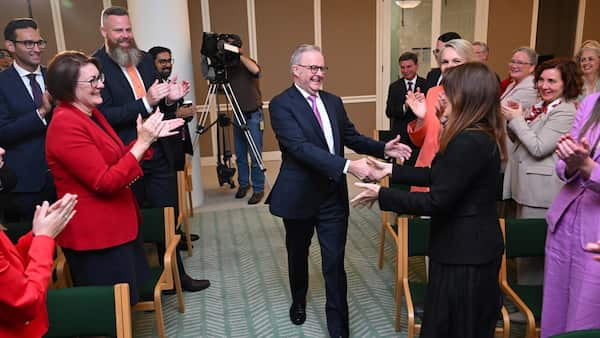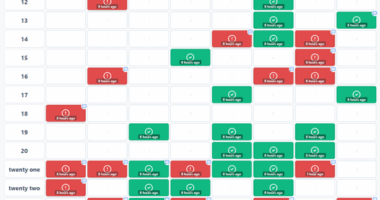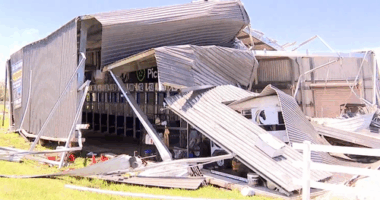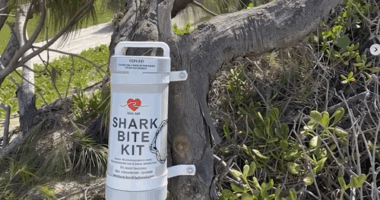Share this @internewscast.com
Prime Minister Anthony Albanese and Labor have entered a of government after winning the federal election in a landslide — but when will their key policy promises kick in?
Labor has secured a majority in the and is currently predicted to hold at least 92 seats, compared to the Coalition’s 40.
The party made a series of sweeping policy promises in the run-up to the election across a number of different sectors, including health care, education, and energy.
The scheduled date for these changes to be implemented is outlined here.
HECS cut
Labor has promised it will cut 20 per cent of all student loan debts, wiping around $16 billion in debt for around three million Australians.
This includes all HELP, VET Student Loan, Australian Apprenticeship Support Loans and other income-contingent student support loan accounts.
When the government announced the policy in November, they said the cuts would come into effect by 1 June 2025, and Albanese recently said he will .
Tax cuts
As part of their budget announcement, the Albanese government promised to for every Australian taxpayer. The legislation for the cuts passed parliament in March.
The staggered cuts include an initial reduction in income tax rates from 16 per cent to 15 per cent from 1 July 2026.
From 1 July 2027, the rate will be cut from 15 per cent to 14 per cent.
Individuals with earnings over $45,000 will experience an additional tax reduction amounting to $268 in the 2026-27 fiscal year and $536 starting in 2027-28.
Working from home tax deduction
The Albanese government has promised Australians working from home will be able to claim an instant $1,000 tax deduction to cover work expenses.
Albanese said this will provide “permanent cost of living relief and make tax time quicker and easier for 5.7 million taxpayers”.
According to the government, the tax deduction is set to be introduced in the 2026-27 financial year.
International student visa fees
To fund some of their election promises, Labor announced in April that from $1,600 to $2,000.
The increased fees are expected to deliver $760 million to the budget over the forward estimates and will come into place from 1 July.
Bulk billing
A key pillar of Labor’s campaign was a promise to , including expanding the bulk-billing incentive to all Australians and introducing a new incentive payment for practices that bulk bill every patient.
Labor said these changes will mean that nine out of 10 GP visits will be bulk billed by 2030.
The changes to bulk billing incentives and the Bulk Billing Practice Incentive Program are both expected to come into effect on 1 November.

Solar batteries
The government has promised to make storage cheaper for households and small businesses by cutting the cost of home batteries.
The Cheaper Home Batteries Program will cut the cost of an installed battery by 30 per cent and come into effect from 1 July.
Subsidised childcare
In February, the government passed legislation allowing families to access .
The government said families earning between $50,000 to $100,000 are expected to save an average of $1,460 per year, and Labor considers it a stepping stone towards universal child care.
Activity tests will be scrapped, meaning parents won’t have to work or study to be eligible for childcare subsidies.
The changes will be in place from January 2026.
For the latest from SBS News, and .












